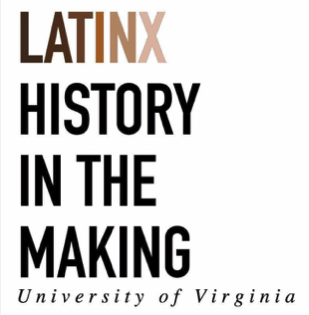Latinx Representation and Engagement with Honor
Author: Mariana Brazão (College 2019)
Image [Right] Property and Courtesy of the Latinx Student Alliance at UVA
I joined honor my first semester first-year, both with the intention of engaging with the system at UVA and with the intention of trying to meet more people in what seemed to be a whirlwind of new experiences. It was much to my surprise that my first interaction with Honor as a newly joined trainee was my first interaction with someone of my heritage at UVA.

It was a late Sunday afternoon and the trainees were invited to their ceremonial initiation dinner at the Garden Room to celebrate our selection and get a glimpse for what the next few months meant for us. As I sat at a round table filled with strange faces, about five minutes into the conversation, I realized that the person I had set next to was from Brazil and spoke Portuguese fluently. Coming from my home town, I had met very few people with Lusophone heritage and who spoke my native tongue fluently. I was absolutely delighted to meet a fellow Brazilian a few weeks into my time at UVA and quickly made the projection that Honor would be a place where I felt a new sense of belonging and tie to my culture.
A year or two into my time with Honor, however, I felt a different sense then what I had originally projected. What I saw instead was a dwindling retention rate of Latinx students in our support officer pool and a lack of innovative ways to engage with the Latinx community through partnership and co-sponsorships, despite some efforts made by the executive board and outreach teams. I also saw other Latinx students resign from their position as support officers because they felt that Honor was not representative of their community and, in effect, did not want to be a part of it. It was in these moments that I started to question the relationship between Honor and the Latinx community.
The 2018-2019 academic year and the release of this bicentennial report has coincided with a momentous year for the Latinx community on grounds. In March of 2018, our first Latinx Student Council President, Alex Cintron, was elected to lead an umbrella organization that oversees the entire student population. I was elected as an Honor Committee Representative for the College of Arts & Sciences, after several years without a Latinx representative. The Latinx Leadership Institute (LLI) was founded by a cohort of Latinx students to empower students to pursue new leadership opportunities, even those like joining Honor. In October of 2018, following a push by the Latinx Student Alliance (LSA) for an increase in translated materials for the Latinx community, Honor “announced its Spanish translation of its [constitution]” with the help of Spanish-speaking students and faculty. [1] A Portuguese translation of the bylaws is currently in progress. Co-sponsorships between Honor and LSA, which are overseen by the Vice Chair for Community Relations, have also been underway, specifically for the annual LSA ball.
On October 19th of 2018, LSA released their groundbreaking “Our University to Shape” proposal to the UVA Administration from the Hispanic/Latinx community. The report, which was published after the Inauguration of the University’s ninth president, James E. Ryan, provides “the University administration and other members of the University community proposals and strategies to begin improving the experiences for Hispanic/Latinx students at the University of Virginia.” [2] These strategies include, but are not limited to, “increasing enrollment of Hispanic/Latinx students at the University and to expand infrastructure,” advocating for increased translation and interpreter services for Latinx students and their families. [3] A hefty portion of this report is geared toward creating a Latinx academic studies curriculum, both through the hiring of faculty and through the creation of a Latinx studies program. Furthermore, this year, “the University admitted it’s ‘most diverse class’ in history. Of the 3,837 students within the Class of 2022, 1,130 of them self-identify as a minority, which is a 35 percent increase in minority student enrollment since 2013.” [4]
With an increase of Latinx representation on grounds, a more diverse student population, and a proposal to increase Latinx academic programs and staff, Honor, as a central institution to this University, must be proactive in its efforts to engage the Latinx community on grounds. The release of this bicentennial report urges a reanalysis our past efforts and initiatives in interacting with the Latinx community and provides an opportunity for a proposal that includes some strategies moving forward. Some questions we should consider include, but are not limited to, are: How can Honor engage in more meaningful co-sponsorships with the Latinx community? How can Honor act as an ally to the Latinx community and Latinx organizations on grounds? More specifically, how can Honor support the push to increase a Latinx academic curriculum on grounds and how will Honor interact with this new department if it is created? Lastly, how can Honor foster a continuous dialogue with the Latinx community, addressing issues of spotlighting, so that they feel included in the ‘Community of Trust,’ not discriminated by it?
This academic year has proven to be one of incredible progress for the Latinx community, but with that being said, there is still much work to do. I urge Honor to harness this moment and encourage this potential so that we can write Latinx history into Honor’s history for the next 200 years and more.
References
[1] Cavalier Daily – Honor announces Spanish translation of its bylaws, constitution. http://www.cavalierdaily.com/article/2018/10/honor-releases-data-from-facebook-ad-campaign-intended-to-broaden-committees-outreach
[2] LSA – Our University to Shape. https://lsaatuva.weebly.com/our-university-to-shape.html?fbclid=IwAR3AgkCd4y3EzApkLVp08T7i66jTchuPNZmHghOV0rdATeEtYER_LX_xkO8
[3] LSA – Our University to Shape. https://lsaatuva.weebly.com/our-university-to-shape.html?fbclid=IwAR3AgkCd4y3EzApkLVp08T7i66jTchuPNZmHghOV0rdATeEtYER_LX_xkO8
[4] LSA – Our University to Shape. https://lsaatuva.weebly.com/our-university-to-shape.html?fbclid=IwAR3AgkCd4y3EzApkLVp08T7i66jTchuPNZmHghOV0rdATeEtYER_LX_xkO8